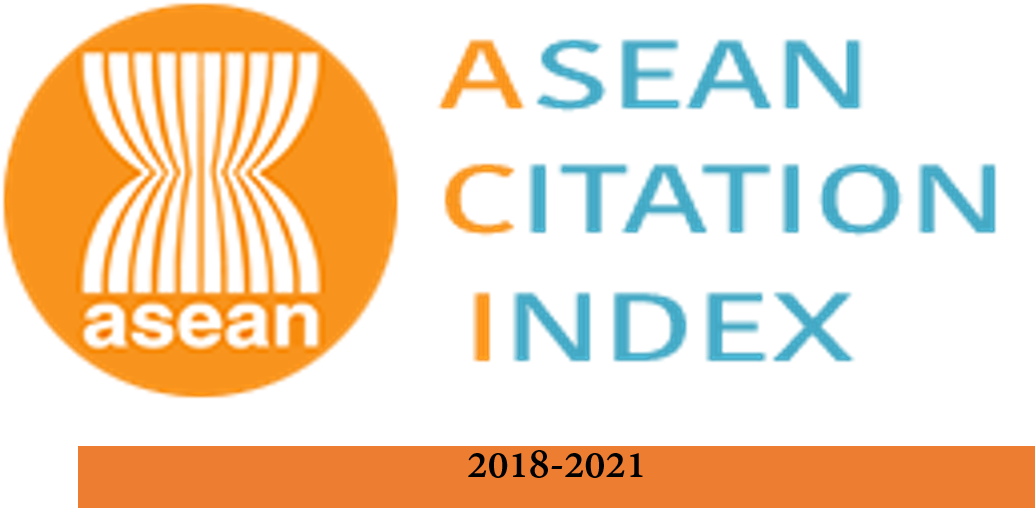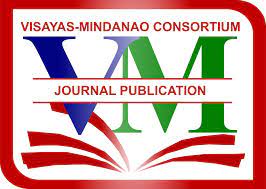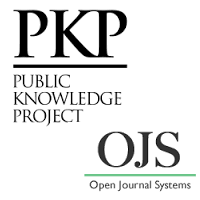Experiences of Graduate Students in Thesis Writing: Its Implications to ASEAN Integration
Abstract
Graduate students often face problems of finishing their degrees based on the observation, experiences, and interviews with students and advisers. These problems are mainly due to the rigorous process of writing a scholarly thesis. Many graduate students are constrained by time and resources. Students do not have adequate research writing skills necessary for papers that reflect creativity, originality, and mastery of one's specialization. In this study, qualitative methods were used with an open-ended survey questionnaire as the basis for the discourses employed in the narrative analysis. Five respondents represented each degree program. These graduate students were asked to describe their experiences of training designed to take them through the different sections of writing their thesis papers. The responses were then categorized using Gagne's five categories of learning outcomes. Results indicate that the students found the training/ seminar-workshop informative and relevant. Based on the learning outcomes, the training improved their intellectual skills, verbal information, cognitive strategies, and attitudes. This training also impacts on the ASEAN integration in that students are confident they would be able to meet academic and professional requirements because of the learning they have undergone through the thesis writing training. Investing in training can help prepare students to meet the challenges of writing scholarly papers which are comparable to those written by other ASEAN member states.
Keywords:
Training-workshop, thesis writing, scholarly thesis, rigorous writing process
References
Bandura, A., & Walters, R. H. (1963). Social learning and personality development. New York: Holt, Rinehart & Winston.
Baram-Tsaburi, A., & Lewenstein, B. (2012, April). An instrument for assessing scientists’ written skills in public communication of science. Science Communication, 35 (1), 56-85.
Bruner, J. (1966). Toward a theory of instruction. Cambridge, MA: Harvard University Press. Retrieved from www.insructionaldesign.org/theories/constructivist.html
Conditions of Learning: Gagne. Robert Gagne's instructional design approach. Retrieved from http://tip.psychology.org/gagne.html
Cone, J. D., & Foster, S. L. (2006). Dissertation and theses: From start to finish. Psychology and Related Fields (2nd edition).
Gagne, R. M. (1985). The conditions of learning and theory of instruction. New York: CBS College Publishing.
Harris, K. R., Graham, S., & Mason, L. H. (2006, June). Improving the writing, knowledge, and motivation of struggling young writers: Effects of self-regulated strategy development with and without peer support. American Educational Research Journal, 4 (2), 295-340.
Kolb, D.A. (1984). Experiential learning: Experience as the Source of Learning and Development. New Jersey: Prentice-Hall Inc. Retrieved from eiclsresearch.wordpress.com/types-of-styles/learning-style
Licuanan, P. B. (2014). CHED Gears Up for ASEAN 2015.Overmeyer, M. (2005). When writing workshop isn’t working. Answers to ten tough questions. Grades, 2-5. USA: Stenhouse Publishers.
Robins, L., & Kanowski, P. (2008). PhD by publication: A student’s perspective. Journal of Research Practice, 4 (2).Sachs, J. D. (2002). The global competitiveness report 2002-2003 - World Economic Forum - Google Books.html
Stelzner, M. A. (2007). Writing white papers. How to capture readers and keep them engaged. Ponway, California: WhitePaperSource Publishing.
Swan, K. (2002). Building learning communities in online courses. The importance of interaction. Education, Communication and Information, 2 (1), 23-49.
Terego, A. (2016, April). Instructional designers: An understanding of social learning matters. Retrieved from elearningindustry.com/why-you-should-adopt-social-learning
Villamil, O.S., & de Guerrero, M.C.M. (1996). Peer revision in the L2 classroom: Social-cognitive activities, mediating strategies, and aspects of social behavior. Journal of Second Language Writing, 5 (1), 51-75.
Vygotsky, L.S. (1978). Mind in society: The development of higher psychological processes. Cambridge, MA: Harvard University Press.
Waddoups, G. L., Hatch, G.L., & Butterworth, S. (2003). Balancing efficiency and effectiveness in first year reading and writing. In J. Bourne, & J.C. Moore, (editors). Elements of quality online education. Practice and direction, 4. In Sloan-C Series. United States of America: The Sloan Consortium.
Yemini, M., & Giladi, A. (2015). Internationalization motivations and strategies of Israeli educational administration programs. Journal of Studies in International Education. Retrieved from https://www.google.com.ph/?gfe_rd=cr&ei=K5u_
Baram-Tsaburi, A., & Lewenstein, B. (2012, April). An instrument for assessing scientists’ written skills in public communication of science. Science Communication, 35 (1), 56-85.
Bruner, J. (1966). Toward a theory of instruction. Cambridge, MA: Harvard University Press. Retrieved from www.insructionaldesign.org/theories/constructivist.html
Conditions of Learning: Gagne. Robert Gagne's instructional design approach. Retrieved from http://tip.psychology.org/gagne.html
Cone, J. D., & Foster, S. L. (2006). Dissertation and theses: From start to finish. Psychology and Related Fields (2nd edition).
Gagne, R. M. (1985). The conditions of learning and theory of instruction. New York: CBS College Publishing.
Harris, K. R., Graham, S., & Mason, L. H. (2006, June). Improving the writing, knowledge, and motivation of struggling young writers: Effects of self-regulated strategy development with and without peer support. American Educational Research Journal, 4 (2), 295-340.
Kolb, D.A. (1984). Experiential learning: Experience as the Source of Learning and Development. New Jersey: Prentice-Hall Inc. Retrieved from eiclsresearch.wordpress.com/types-of-styles/learning-style
Licuanan, P. B. (2014). CHED Gears Up for ASEAN 2015.Overmeyer, M. (2005). When writing workshop isn’t working. Answers to ten tough questions. Grades, 2-5. USA: Stenhouse Publishers.
Robins, L., & Kanowski, P. (2008). PhD by publication: A student’s perspective. Journal of Research Practice, 4 (2).Sachs, J. D. (2002). The global competitiveness report 2002-2003 - World Economic Forum - Google Books.html
Stelzner, M. A. (2007). Writing white papers. How to capture readers and keep them engaged. Ponway, California: WhitePaperSource Publishing.
Swan, K. (2002). Building learning communities in online courses. The importance of interaction. Education, Communication and Information, 2 (1), 23-49.
Terego, A. (2016, April). Instructional designers: An understanding of social learning matters. Retrieved from elearningindustry.com/why-you-should-adopt-social-learning
Villamil, O.S., & de Guerrero, M.C.M. (1996). Peer revision in the L2 classroom: Social-cognitive activities, mediating strategies, and aspects of social behavior. Journal of Second Language Writing, 5 (1), 51-75.
Vygotsky, L.S. (1978). Mind in society: The development of higher psychological processes. Cambridge, MA: Harvard University Press.
Waddoups, G. L., Hatch, G.L., & Butterworth, S. (2003). Balancing efficiency and effectiveness in first year reading and writing. In J. Bourne, & J.C. Moore, (editors). Elements of quality online education. Practice and direction, 4. In Sloan-C Series. United States of America: The Sloan Consortium.
Yemini, M., & Giladi, A. (2015). Internationalization motivations and strategies of Israeli educational administration programs. Journal of Studies in International Education. Retrieved from https://www.google.com.ph/?gfe_rd=cr&ei=K5u_
Published
2017-05-25
Section
Articles
Copyright (c) 2017 Asia Pacific Journal of Social and Behavioral Sciences
Copyright holder is the Bukidnon State University.










